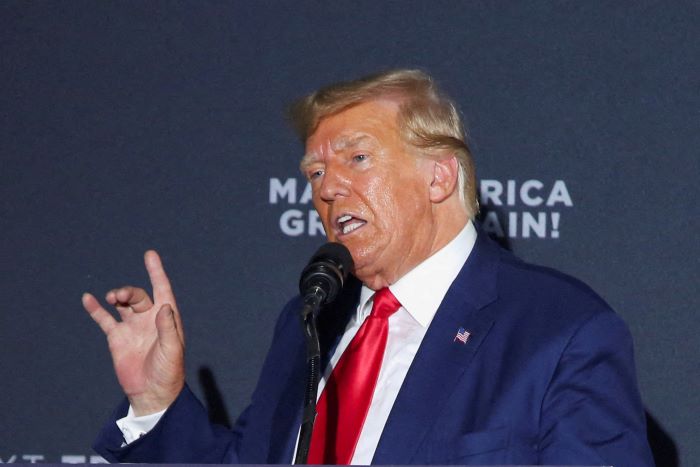Politics
Supreme Court Decides Trump Can Be Listed on Presidential Ballots
In a landmark decision, the United States Supreme Court unanimously ruled on Monday that Donald Trump can be listed on presidential ballots this year, putting an end to nationwide efforts to bar him from the race under a rarely invoked constitutional provision. The provision in question prohibits individuals involved in insurrection from holding federal office.
Overturning Colorado Supreme Court Decision
The high court overturned a previous decision by the Colorado Supreme Court. The latter had asserted that Trump had forfeited his eligibility to run for president again. This was due to his attempts to overturn the outcome of the 2020 election. This development came just one day before Super Tuesday, a crucial day in the presidential primary season, with Colorado and 14 other states, along with a territory, set to hold primaries.
“The high court’s reversal on Trump’s eligibility for presidency just before Super Tuesday is pivotal,” according to New York Times.
Congress Holds Exclusive Enforcement Power
In a significant 13-page opinion delivered without attribution, the Supreme Court stated that the power to enforce the relevant constitutional provision lies exclusively with Congress. This provision is Section 3 of the 14th Amendment. The Court emphasized that states lack the constitutional authority to enforce Section 3, particularly concerning federal offices like the presidency.
Liberal Justices Express Dissent in Concurring Opinion
While the decision was unanimous, the justices showed ideological divisions in their reasoning. The three liberal justices—Sonia Sotomayor, Elena Kagan, and Ketanji Brown Jackson—issued a concurring opinion expressing concern that the majority went beyond the necessary scope. They criticized the suggestion that congressional legislation could only enforce the insurrection clause.
Impact on State-by-State Battles
The ruling not only has immediate implications for Trump but also ends efforts in various states to challenge his eligibility. State officials in Maine and a judge in Illinois had previously declared Trump ineligible, sparking litigation in other states. The Supreme Court’s decision effectively quashes those challenges.
Trump’s Response and Ongoing Legal Concerns
Shortly after the ruling, Trump held a press conference at his Mar-a-Lago club in Florida, praising the decision. However, he voiced ongoing concerns about a pending case related to his claim of immunity from prosecution. Given the multiple criminal indictments and civil lawsuits he currently faces.
Historical Context and Future Ramifications
This Supreme Court decision is being regarded as one of the most significant in presidential election history since the 2000 Bush v. Gore case. The ruling settles immediate questions about Trump’s candidacy. However, it does not explicitly address whether Congress could reject his electoral votes if he were to win the November election. This leaves room for potential future legal debates.
“The Supreme Court ruling on Trump’s candidacy echoes Bush v. Gore, leaving unresolved questions for Congress,” according to Barron’s.

